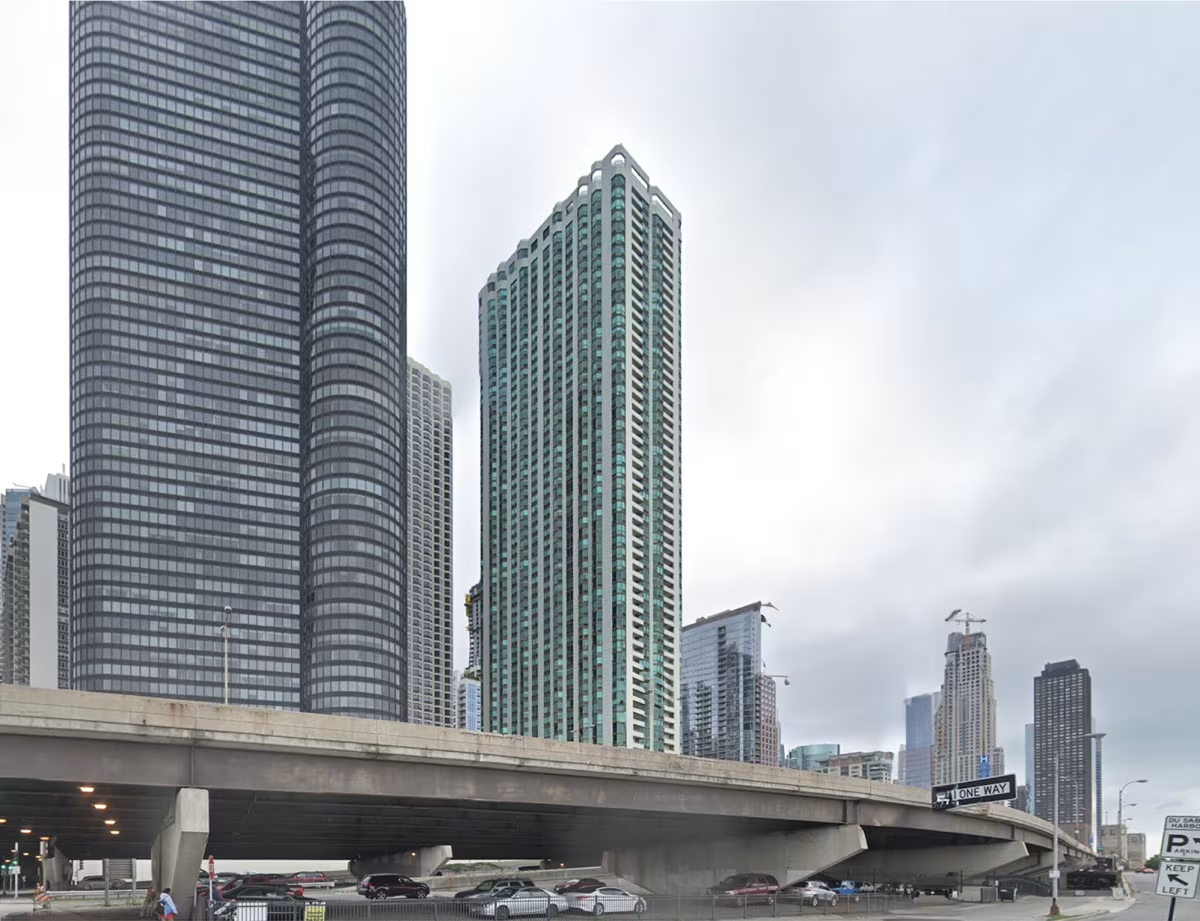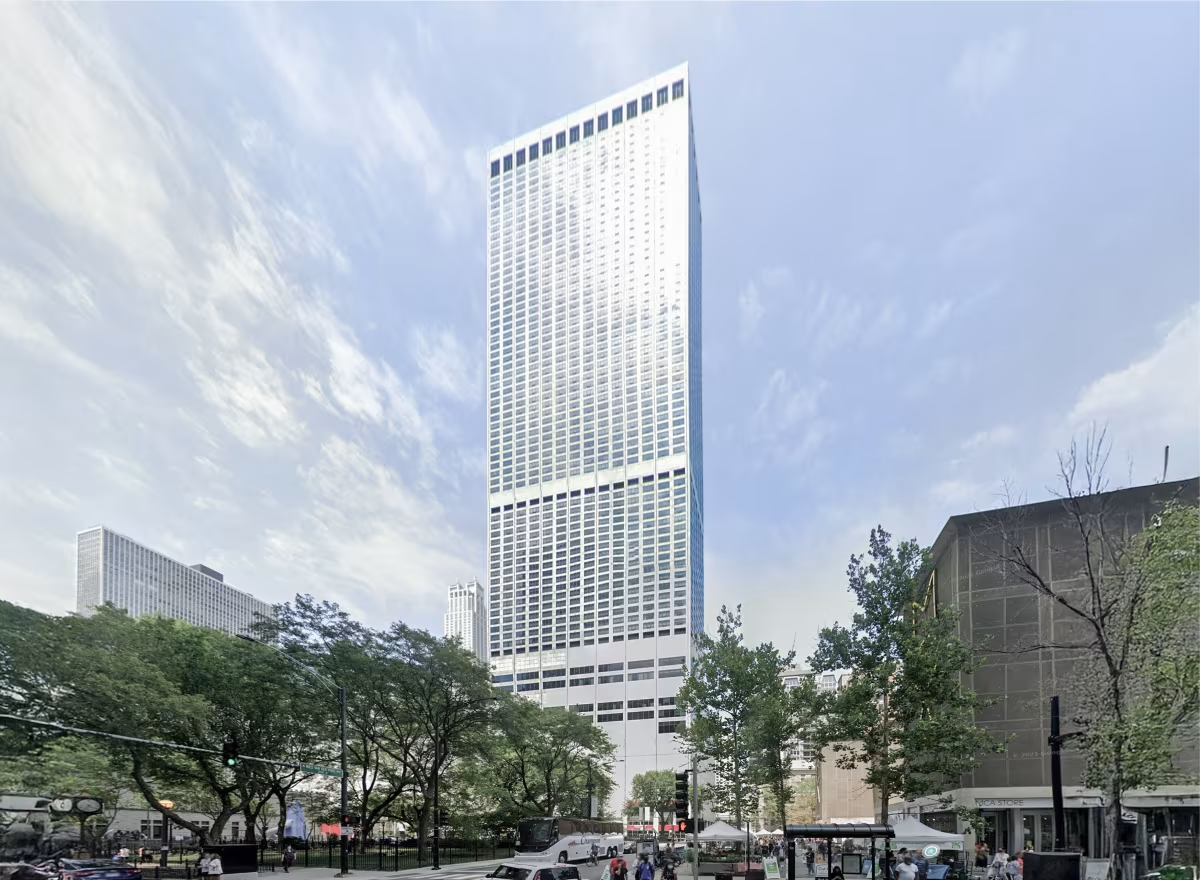The Parkshore vs Water Tower Place


Comparing the The Parkshore and the Water Tower Place is interesting because they both rise in Chicago, IL, yet they were conceived by two different design teams, Barancik Conte and Loebl Schlossman Bennett and Dart, and were completed at different points in time. They were finished more than a decade apart.
This contrast within the same city allows us to see how different creative minds interpreted the evolving needs of Chicago across time.
Let's take a closer look!
Height & Size
The Water Tower Place is clearly the larger tower of the two, both in terms of height and number of floors. It rises to 860ft (262m) with 74 floors above ground, while the The Parkshore reaches 554ft (169m) with 56 floors above ground.
Of course, each project may have faced different briefs or regulatory constraints, which we don't really know about and could also explain the outcome.
Architectural Style
Both the The Parkshore and the Water Tower Place were designed in line with the aesthetic conventions of the Modern style.
Both buildings were completed when the Modern style was already past its peak. This makes them feel like late echoes of the movement, more reflective of continuity or nostalgia than of cutting-edge design at the time.
Uses
The Water Tower Place follows a mixed-use model, combining hotel, residential and retail. In contrast, the The Parkshore has remained primarily residential.
The Water Tower Place incorporates a 5-star hotel with 435 rooms. More information is available at the official website.
In terms of capacity, the The Parkshore offers 483 apartments, while the Water Tower Place provides 360 units.
The The Parkshore also provides 371 parking spaces.
Structure & Facade
Both towers share the same structural solution, a Frame system.
A frame structure uses a grid of columns and beams to carry the building's loads. This frees the walls from structural duties, allowing for flexible floor plans and larger windows.
However, when it comes to the facade, both buildings use different approaches. The The Parkshore uses a Curtain Wall facade, while the Water Tower Place uses a Window Wall facade.
A Curtain Wall facade like the one seen in the The Parkshore uses a lightweight glass curtain wall hung from the structure, while a window-wall facade like the one seen in the Water Tower Place uses panels fitted between floor slabs, leaving slab edges visible.
| The Parkshore | Water Tower Place | |
|---|---|---|
| Barancik Conte | Architect | Loebl Schlossman Bennett and Dart |
| 1991 | Year Completed | 1976 |
| Modern | Architectural Style | Modern |
| Residential | Current Use | Mixed |
| 56 | Floors Above Ground | 74 |
| 169 m | Height (m) | 262 m |
| 483 | Residential Units | 360 |
| Frame | Structure Type | Frame |
| Reinforced Concrete | Vertical Structure Material | Reinforced Concrete |
| Reinforced Concrete | Horizontal Structure Material | Reinforced Concrete |
| No | Facade Structural? | Yes |
| Glass, Precast Concrete | Main Facade Material | Marble, Glass |
| Power Construction Company | Main Contractor | Inland Robbins Co. |
| Amurcon Development | Developer | Philip Morris Klutznick |
| Alfred Benesch & Company | Structural Engineer | C.F.Murphy Associates |
| IL | State | IL |
| Chicago | City | Chicago |
| 195 North Harbor Drive | Address | 835 Michigan Av |